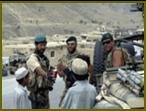|
International Defense and Homeland Security Simulation Workshop
10-12 September, 2014 Agora Multi-Purpose Complex, University of Bordeaux Bordeaux, France
|

|
For further information please contact Edgar Alonso Lopez-Rojas, Joni A. Amorim, |


|
Joint EMSS—DHSS Track Call For Papers
Computer Simulation for Security
Track at the International Defense and Homeland Security Workshop
Track Chairs: (a) Edgar Alonso Lopez-Rojas ; (b) Joni A. Amorim ; © Richard Zaluski
Contacts: (a)edgar.lopez@bth.se ; (b) joni.amorim@his.se ; © richard.zaluski@cscss.org
Affiliations: (a) Blekinge Institute of Technology (b) University of Skövde (c ) Center for Strategic Cyberspace + Security Science
Paper submission: April 15, 2014 Notification of acceptance: May 15, 2014 Final camera-ready submission: June 15, 2014
Author’s Instruction for paper submission
Track description A digitally interconnected world demands that we coordinate modeling and simulation into cyber security with the intent of helping organizations to secure their assets and find practical solutions for the critical issues of today. Modeling and simulation are essential to research, development and adoption of the next generation of technologies. Nevertheless, these technologies must be delivered to different industries in a close collaboration with academia through public-private partnerships. On the other hand, modeling and simulation are now key competencies to be incorporated by the security workforce. Security is sometimes an obscure topic because of the needs to preserve privacy but simulation is one possible way to address this issue. Examples of new approaches include agent based simulation and similar techniques that may be used to model behaviors, malicious or not. These simulations favor relevant discoveries while being commonly used to test current or experimental detection methods at low cost. In this way, the goal of this track is consider the state of the art in security within the perspective of simulation.
Topics of interest include simulation in the following contexts: · architecture driven security flow · certification processes for individuals · cloud, big data, analytics and security · cyber intelligence and profiling · cyber security, cybercrime and fraud · cyber warfare modeling and simulation · denial of service · disaster simulation and recovery planning · discovery and awareness of new and current threats · education and training · financial transactions · forensic computing · fraud detection · information security · intrusion detection · new approaches for security · privacy and ‘anonymization’ techniques through simulation |
|
DHSS, 2014 |



|
< I3M 2014 |
